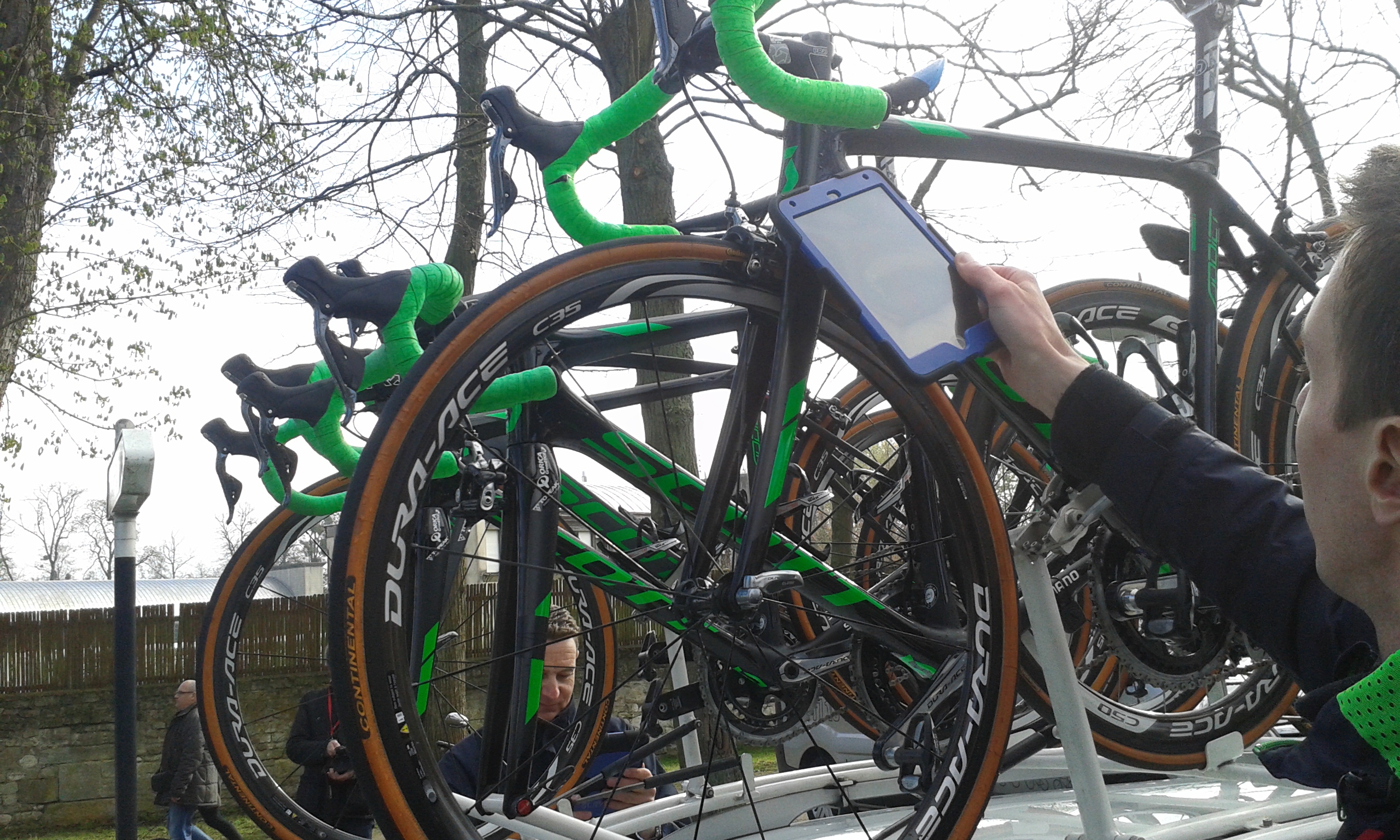UCI to step up fight against mechanical doping in March
Lappartient will unveil five elements to battle cheating

At an informal sit down with the press at the Tour Down Under, UCI president David Lappartient confirmed the governing body's on-going fight against mechanical doping. An announcement regarding new initiatives and technologies was initially slated for the end of January but will now be made in March with a demonstration by the UCI.
During his election campaign in the lead up to September's presidential elections and following his victory, Lappartient has remained committed to stamping out mechanical doping from cycling. The UCI's tablet scanning of bikes before and after races remains its number one method for now but from March, sophisticated changes are coming as Lappartient explained
"It has been a little bit delayed because we were supposed to probably make the announcement at the end of January," Lappartient said of the developments.
"We can do this but I prefer to make the announcement with the demonstration with what we will do. This will probably be in the middle of March. What I can tell you is that we are ready and we know what we will do. We will have five different ways to fight and of course we have been working very hard with Bob Stapleton, the chairman of the equipment material, plus Jean-Christophe Péraud who has been involved in this.
"We will be ready for this but nevertheless in the meantime, I would say between now and mid-March, we will continue to use the current system we have. Plus, some other systems but we will be really ready after mid-March."
The cost of the UCI's investment in new technologies and testing methods is estimated at €500,00 per-year by Lappartient. The methods are set to include tablets, x-rays, thermal cameras and the dismantling bikes to check for hidden motors.
Belgian rider Femke Van Driessche remains the only cyclist to have been caught with a motor in a professional race, at the 2016 'cross Worlds and was handed a six-year ban. Since then, there have been several incidents at amateur level including a 53-year-old in a race near Brescia in Italy, and a 43-year-old French rider in a race in the Dordogne. Both in 2017.
Get The Leadout Newsletter
The latest race content, interviews, features, reviews and expert buying guides, direct to your inbox!
The main focus of the UCI's fight against mechanical doping will be professional cycling but for Lappartient, it is an issue that needs eradicating from the sport in general. Although Lappartient has "no specific idea" if mechanical doping is currently taking place, he would rather be safe than sorry and witness the sport endure further scandal.
"To guarantee the credibility of the result and give the message to all the people that love cycling that, 'ok, you can trust our sport. We are doing what we have to do'. And this is why I don't want to be in a situation to ask myself do we have such a situation or not," he said of the reasoning to further invest in controls for mechanical doping. "I don't think so but I am not sure. I want to be sure and we also have to consider not only the top level but also national races, regional races, because we saw an example in Italy, in France.
"Our idea on this will be to fight at the top level on the track and the road but also to deliver something very low cost but efficient to the national federations to fight at their level. To ensure in cyclo-sportif that we have no problem with this."
Lappartient is hopeful the increased investment and new methods from the UCI can keep the UCI ahead of the issue. A "problem" he believes is "less difficult to solve than the doping situation."
"With that technology we have I think there is no way to go outside. But of course we must always be careful about the development of technologies because you can have systems of technology to cheat that is sometimes smaller and smaller so we have to be careful. The technology we will deliver ... is also technology for the future and we will develop this in 2018.I am confident we will solve this problem.”